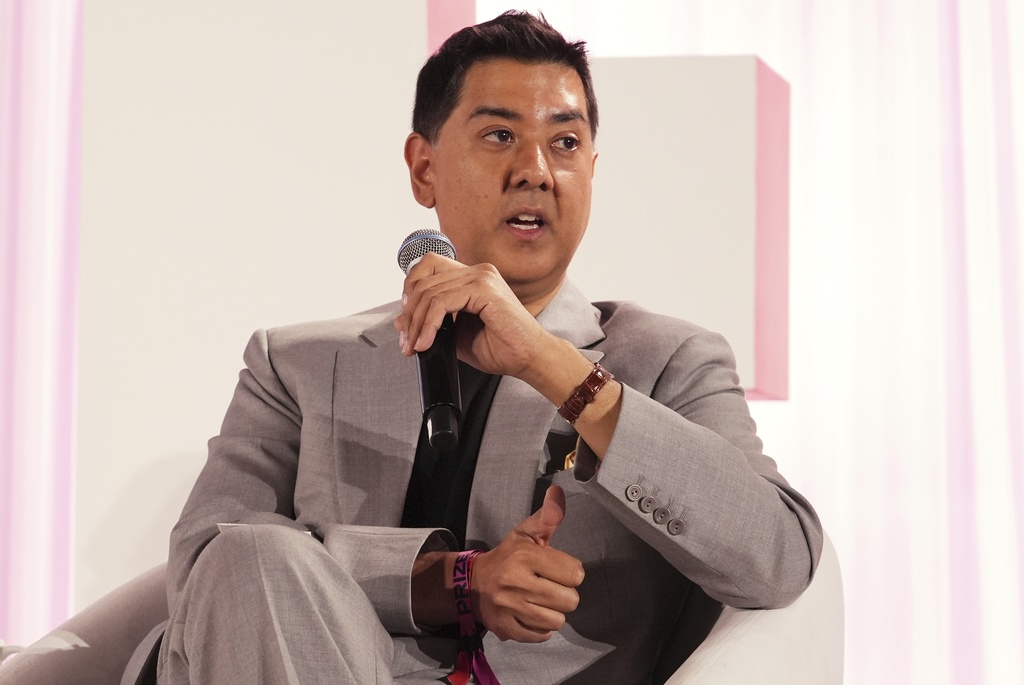While defining Gen Z is complicated, it may be even harder to understand the generation’s complex relationship with news and media.
Lee Banville is the director of the University of Montana School of Journalism. He worked alongside Jim Lehrer on PBS NewsHour for 14 years as the internet revolution came online.
"Getting a student to believe stuff is actually really hard these days," Banville said. "I remember Jim used to have a thing where it's like, 'All I got to do is convince the guy watching TV to yell out to his wife, 'Hey, Mable, come in and watch this.'' And that's how we knew we got a good story, is if he yelled that. And it was like, that is different. It's a different world, right?"
A different world is right.
Gen Z is broadly defined as people born between 1997 and 2012, who now range from 11 to 26 years old. University of Montana student Grace Bintz falls into that category.
SCRIPPS NEWS' MARITSA GEORGIOU: Where do you get most of your news?
GRACE BINTZ: Definitely social media — unfortunately.
GEORGIOU: Is there a specific site?
BINTZ: Probably Snapchat.
She’s typical. A 2022 poll shows the favorite news source for Gen Z is social media — with 50% reporting daily use. Network and cable TV news came in fifth and sixth place, with newspapers dead last. And they’re using sites like YouTube, TikTok, Instagram and Snapchat — not Facebook or Twitter.
"They think of news differently than we did when you grew up in the 1970s, 1980s and 1990s," Banville said.
Erin Sargent looks at this from many viewpoints. She’s part of Gen Z served as editor-in-chief of the University of Montana student newspaper and now handles social media for Girls' Life magazine. Gen Z is her target audience.
"We grew up with podcasts, and like YouTube documentaries, and all of these different things that I think for me, journalism is learning all of those skills, and then seeing where can I put it," Sargent said. "I would say optimistically that media has always evolved. This is just another evolution."
Remember, this is the first generation born after the widespread adoption of the internet.

How 'Gen Z Slang' Connects To Black Culture Appropriation
A style of speaking known as African American English has been used by young White people more recently, which can lead to appropriation.
"We're not used to scheduling a time to watch anything. I mean, you go on Hulu to get news — you go on Hulu to get everything," Sargent said.
They also grew up with an over abundance of news sources — legitimate and, well, not.
"The democratization of publishing that anybody can publish anything anywhere at any time has led to like news sources that used to be seen as the source are now just one of a bazillion sources," Banville said.
A 2022 AP-NORC poll highlighted Gen Z’s complicated relationship with the news — with low trust in the press and a high worry about misinformation.
"There's so much misinformation that's happening, especially because there's a lot of polarization among the political spectrum," said Mason Rusek, a student at the University of Montana.
You don’t have to look far to see evidence of widespread falsehoods on platforms like TikTok. Take the investigation into the murders of four college students in Moscow, Idaho.
Amateur detectives used social media platforms to openly speculate who was to blame and what happened. Some named innocent people as suspects. Officials scrambled to put a stop to it as the investigation played out.
Newsrooms and journalists have had to shift with a big focus on digital and social media. Also, clearly labeled sources and media literacy.
"I'm so passionate about that. I wish that was something that we taught more frequently in school. I mean, for me, it was a required course. I wish that it was a required course for everyone," Sargent said.
"You really have to focus on like core principles of like, is it verified? Is it sourced and care less about like, where did you get it?" Banville said. "Your credibility is everything and it's not even your organization's credibility. It's like your credibility."
There’s one more thing we learned from these young people.
"I think there's something fun in things that are retro," Sargent said.
What’s old is new again and as we learned — especially if it has the right endorsement.
"If the Kardashians, for example, were to like endorsing a newspaper or something, I think a lot of people would be out there," Rusek said.
"I love the habit of sitting down and watching the local news and seeing the weather and everything. It sounds awful, but it's like novel, which is so ironic," Sargent said.
Hey, if flip phones, cassette tapes and even Crystal Pepsi can make a comeback — why not the morning newspaper or the evening news?











